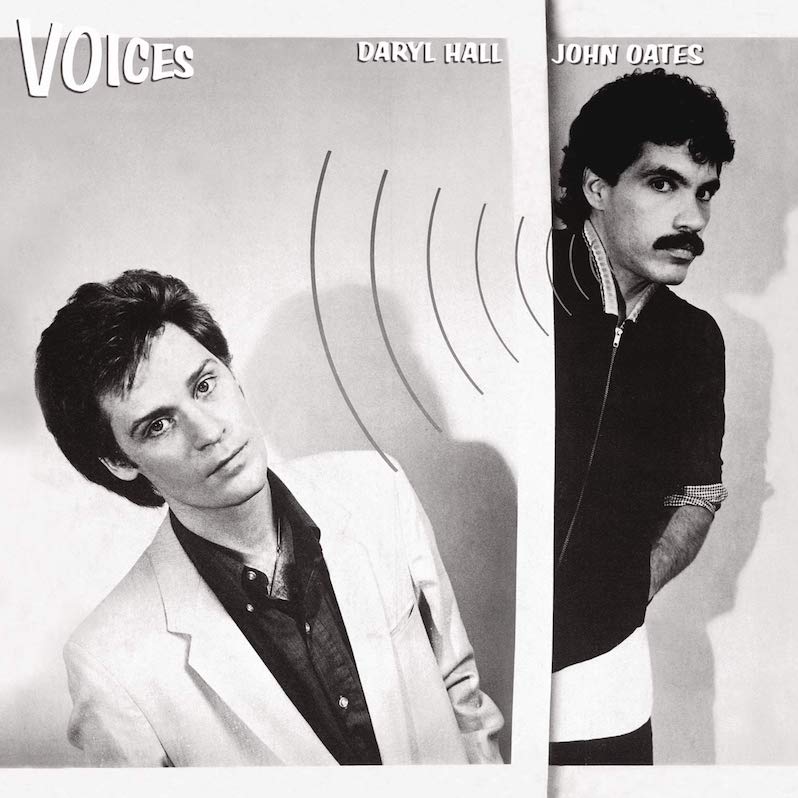Hall and Oates’ “Diddy Doo Wop (I Hear the Voices)” is the most sinister kind of earworm

Fandom is both a blessing and a curse. There’s no achieving any kind of success without developing a fanbase, but that fanbase is something beyond anyone’s control. And the bigger the celebrity, the more toxic and egregious fan behavior can ultimately become, from troll armies sending death threats in Twitter DMs to actual stalkers that threaten their safety.
And, well, sometimes they’re serial killers.
That’s not really something you can anticipate, though. It’s easy to rationalize that away by saying that heavy metal or hard rock will naturally appeal to a violent person because it’s violent music—see: Richard Ramirez and AC/DC. The problem with this generalization about aggressive music is that it isn’t really true, plus it doesn’t take into account why Charles Manson made efforts to ingratiate himself with The Beach Boys. And it definitely doesn’t explain how Hall and Oates ended up connected—through no choice of their own—with David Berkowitz, aka Son of Sam.
Berkowitz, who was convicted of eight separate shootings in New York in the 1970s that included the deaths of six people, spun some pretty absurd yarns in his time, most famously that a demon possessing the body of his neighbor Sam’s dog had actually given him directions to carry out the murders. He ultimately owned up to that story being bullshit—if nothing else Mindhunter warns us about the pitfalls of giving serial killers the attention they crave—but that’s not the last of his whoppers. Not by a longshot—Berkowitz also claimed that Daryl Hall and John Oates‘ 1977 pop hit “Rich Girl” was, in fact, the phenomenon that inspired him to go on a murder spree.
Beyond the absurdity of it, his claims are pretty easy to debunk. Berkowitz’s first shootings began before “Rich Girl” was even released, though that doesn’t make it any less of a good story. After all, we can imagine Slayer, Wagner, or even the muffled sounds of a neighbor’s sound system driving someone to commit heinous acts. But “Rich Girl”? That’s the one you’re gonna go with?
It’s not the kind of publicity that most artists would ask for or even acknowledge, but Hall and Oates took a more surprising tack by using their own weird experience as murderer muses as fodder for—what else—a very catchy pop song. “Diddy Doo Wop (I Hear the Voices)” is the closing track on the Philadelphia duo’s 1980 album Voices, a hook-heavy response to finding themselves a footnote to a truly bizarre and macabre turn of events.
“Diddy Doo Wop” doesn’t sound like a violent bloodbath wrought from pop hooks—it’s rife with new wave jangle, soulful groove, and the harmonies and production details that had become the pop duo’s signature. By any measure, it’s Hall and Oates at the peak of their songwriting powers. But a closer listen to the lyrics reveals something more sinister, even darkly humorous in its subject matter: It’s a song about how a maddening earworm really could cause someone to go on a killing spree.
In fairness to Hall and Oates, it’s technically not a song about Berkowitz, not in any literal sense. The narrator in the song is a machete-wielding maniac who finds his victims on the New York City subway (“I’m slicing through the air—swish, swish“). Berkowitz didn’t do that (though reportedly someone else did around that same era). But Hall and Oates’ unasked-for token of appreciation from Berkowitz is what it’s implicitly about, the duo even name-checking Son of Sam (and Charles Manson) in the song’s most memorable line: “Charlie liked the Beatles/Sam, he liked Rich Girl/But I’m still hung up on the Duke of Earl.”
It’s a wild one. The more I think about it the more fascinated I am by how Hall and Oates not only acknowledged their most notorious fan, they even essentially winked back at him. It’s hard not to read a little bit of flattery in “Diddy Doo Wop,” or at the very least, as much amusement as bemusement.
Not that the duo would admit to any such thing. Not on the record anyway.
“I can’t help it if deranged people like our music,” Oates told Independent. “We wrote the title track for the Voices album based on the headlines in New York City at that time, because there was a guy riding around on the subway slashing people with a machete. We were looking at the stories, wondering what could make somebody so crazy that they would be driven to do something so terrible. Then we thought: you know when you get a song stuck in your head and can’t shake it and it’s infuriating? What if that happens to somebody who’s mentally imbalanced?”
Nobody asks to have their name or their song lyrics on the lips of a deranged murderer, just as they wouldn’t necessarily ask for their listeners to become marauders stomping out dissent on social media. (I mean, I certainly would hope not, anyhow.) Hall and Oates neither denied it nor ignored it, but found a form of inspiration in something that’s, frankly, pretty fucked up. Who knew they had it in them?
Support our Site—Subscribe to Our Patreon: Become one of our monthly patrons and help support an independent media resource while gaining access to exclusive content, shirts, playlists, mixtapes and more.
Jeff Terich is the founder and editor of Treble. He's been writing about music for 20 years and has been published at American Songwriter, Bandcamp Daily, Reverb, Spin, Stereogum, uDiscoverMusic, VinylMePlease and some others that he's forgetting right now. He's still not tired of it.


I did!
I did, too!